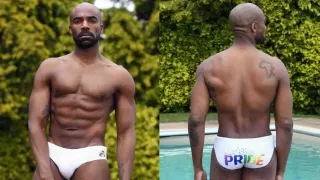July 11, 2019
Treasury Secretary: Congress May Need Quick Debt Limit Deal
Alan Fram READ TIME: 2 MIN.
Congress might need to extend the government's crucial ability to borrow money before leaving the Capitol for its August recess, Trump administration officials said Wednesday. The timetable would heap extraordinary pressure on lawmakers to cut a deal on a measure that usually requires lengthy and politically delicate negotiations.
The remarks by Treasury Secretary Steven Mnuchin came two days after the Bipartisan Policy Center, a centrist research organization, projected that lower than expected federal revenue could drain the government's cash by early September. Unless Congress extends the debt limit first, that could mean an unprecedented federal default, which many think could batter the economy.
"That is something we're having discussions about, updating the numbers and potentially the need to do something before everybody leaves" for the summer recess, Mnuchin told reporters.
The Treasury secretary spoke after he and other top White House officials met for about an hour with Senate Majority Leader Mitch McConnell, R-Ky., and House Minority Leader Kevin McCarthy, R-Calif.
A vote to extend the government's power to borrow money is a painful one for many lawmakers, especially Republicans, because many voters view the measure inaccurately as a reason for massive federal deficits, rather than a result of them.
Because of that, party leaders prefer to couple debt-limit extensions with more palatable provisions.
This year, top Republicans and Democrats hope to include language raising limits on defense and domestic spending that Congress imposed years ago and are now viewed as far too draconian.
Talks over those spending caps are far from resolved and seemed possible to last at least until Oct. 1, when the new government fiscal year begins. An agreement would need to be bipartisan because it would have to clear the Democratic-run House and the GOP-controlled Senate and be signed by President Donald Trump.
The House is due to leave town on July 26, the Senate on Aug. 2.
Asked about the day's meeting, McConnell told reporters, "Secretary Mnuchin is discussing the matter with the speaker, and that's where it goes next."
Mnuchin and House Speaker Nancy Pelosi, D-Calif., plan to discuss the debt limit and spending caps Thursday.







